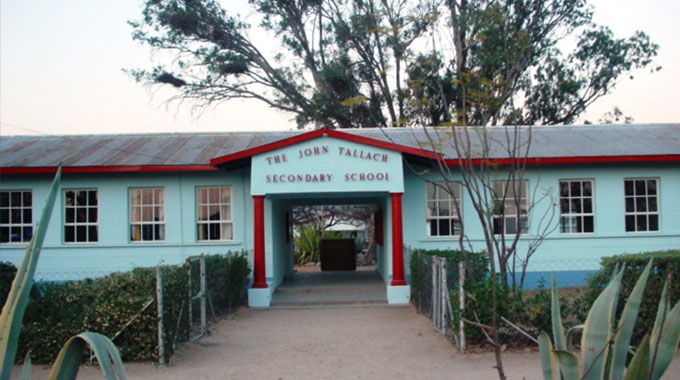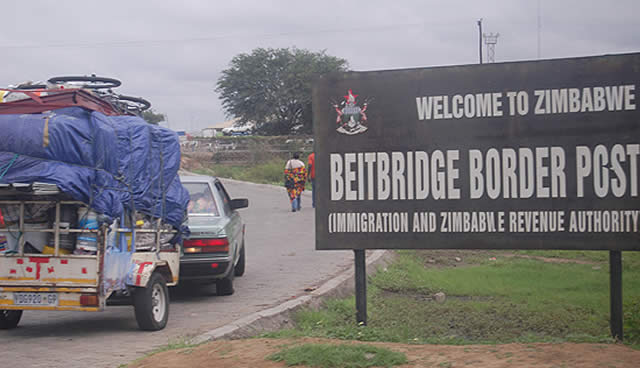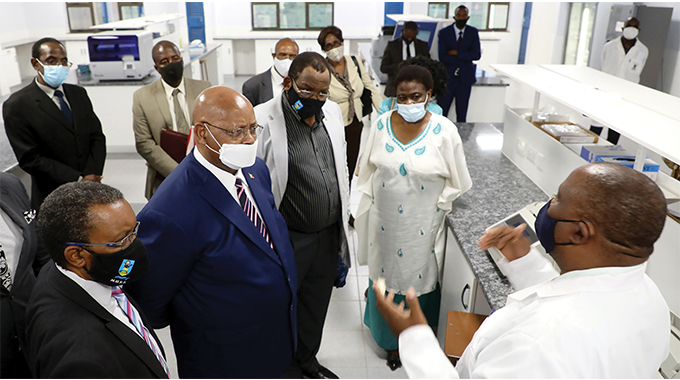184 Covid-19 infections at John Tallach

Thandeka Moyo-Ndlovu and Bongani Ndlovu , Health Reporters
ZIMBABWE continues to record an increase in Covid-19 cases with 39 more pupils testing positive at John Tallach High School in Ntabazinduna, Matabeleland North Province.
The new cases bring the total number of pupils who have tested Covid-19 positive at the school to 184.
Three Covid-19 deaths and 48 new infections were recorded in the country on Sunday with the national recovery rate now at 85.9 percent. Two of the deaths were reported in Bulawayo province while one was from Masvingo.
According to the Ministry of Health and Child Care, a majority of the new cases were recorded in Matabeleland North Province following the John Tallach outbreak. The school with an enrollment of 623 pupils had 145 pupils testing positive last week. After another round of testing over the weekend 39 more tested positive.
Despite the rising Covid-19 cases at learning institutions, the Ministry of Primary and Secondary Education says schools are strictly following regulations put in place to curb the spread of Covid-19 which has killed 268 Zimbabweans so far.
Under the Standard Operating Procedures (SOP), hugs, handshakes and sharing of desks are not permitted in schools.
Break and lunch time must be staggered to prevent crowding by learners while sporting activities are banned. A classroom should only accommodate a maximum of 35 pupils to allow for social distancing.
Acting Matabeleland North Provincial Medical Director Dr Munekayi Padingani said yesterday:
“At John Tallach, the figure is now at 184 who have tested positive after testing the whole school. Those who are positive are going to be isolated, and discharged based on the national guidelines. And the rest have to be retested and we shall do it the same day. There are 400 who are negative, and we shall retest this coming Sunday. So, all the learners are at school, with the positive ones in isolation and those who tested negative in quarantine.”
He said at George Silundika High School, two health workers at the clinic tested positive for Covid-19.
“There were two health workers at George Silundika clinic that tested positive for Covid-19. The contact tracing has been done and no one is positive. The son of one of the workers who was sick stays with them. He tested positive.
However, at the school no one is positive,” said Dr Padingani.
Two weeks ago, Vice President Dr Constantino Chiwenga who is also the Minister of Health and Child Care warned of the possibility of the country being hit by a second wave of Covid-19 saying ignorance, denial and wishful thinking could lead to more deaths.
Schools have become the latest institutions to be hit by the virus after their phased reopening which started on September 28.
Meanwhile, Unesco has launched a WhatsApp-based educational application, Dzidzo Paden/Imfundwe’ndlini.
The application is designed to ensure learning continues even in times of crisis like Covid-19 and comes at a time when more schools and colleges have been hit by the global pandemic forcing authorities to turn some of them into quarantine centers.
In a statement Unesco said the application is in partnership by its Regional Office for Southern Africa (ROSA) with partnership with the Ministry of Primary and Secondary Education and the Zimbabwe School Examinations Council.
Dzidzo Paden/Imfundwe’ndlini is a WhatsApp automated chatbot aimed at distributing premium academic resources to learners who have limited or no access to the internet but have access to WhatsApp.
“The chatbot will start by distributing curriculum-aligned academic resources like notes, past exam papers and marking schemes for Grade 7s, Form 4s and Upper 6s. In addition to academic materials, the App will create awareness among teachers and learners on the importance of health and hygiene, and on Covid-19 prevention through age-appropriate information about coronavirus and other infectious diseases,” said the organisation.
The application which was launched yesterday has the potential to reach the 5.2 million people who use WhatsApp in Zimbabwe.
Unesco says it will also provide information directly into the hands of learners, teachers and parents.
“With school closures due to Covid-19, many learners and teachers have been using WhatsApp to share information, an indication that WhatsApp is a relatively cheap and simple resource that can be capitalised to help learners access academic materials,” added Unesco.
The Dzidzo Paden/Imfundwe’ndlini App was created by 18-year-old Trueman Hama, a Lower 6 student at St Georges College in Harare studying Mathematics, Physics, Chemistry and English Language.
Unesco regional director for Southern Africa Professor Hubert Gijzen said utilising digital technology would ensure that learning continues even during times of pandemics such as Covid-19.
“Digital technology presents a unique opportunity to serve as a medium for the transmission of educational and academic information. This way, information and knowledge can go viral and spread faster, particularly as learners are preparing for their final examinations,” he said.
Director of Communications and Advocacy in the Ministry of Primary and Secondary Education Mr Taungana Ndoro recently said only few out of 9 625 schools in Zimbabwe have learners who have tested positive.
“The rest of the schools in the country are observing Standard Operating Procedures to the book, go to places like Manicaland, Masvingo and the Midlands there are no cases of Covid-19 in schools. Out of the schools that have incidents of Covid-19, some cases really have nothing to do with the schools mentioned, like a teacher at a school in Bulawayo who tested positive for the virus but was actually not attending classes as she claimed she was incapacitated, so it had nothing to do with learners, the school and the education system,” he said.
Mr Ndoro said since the outbreak of Covid-19, schools in the country have intensified precautions.-Follow on Twitter @thamamoe/@bonganinkunzi











Comments